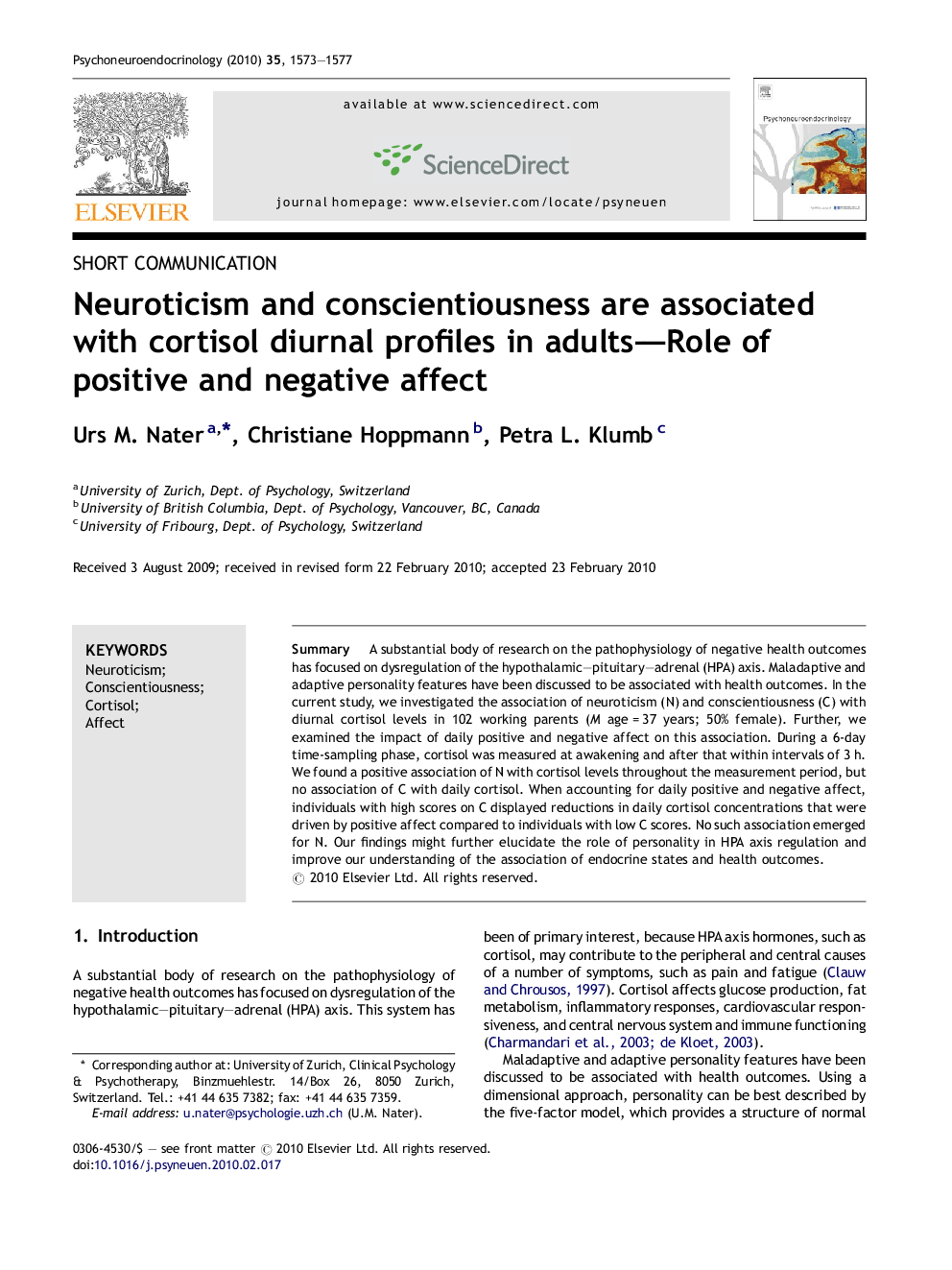| Article ID | Journal | Published Year | Pages | File Type |
|---|---|---|---|---|
| 336013 | Psychoneuroendocrinology | 2010 | 5 Pages |
SummaryA substantial body of research on the pathophysiology of negative health outcomes has focused on dysregulation of the hypothalamic–pituitary–adrenal (HPA) axis. Maladaptive and adaptive personality features have been discussed to be associated with health outcomes. In the current study, we investigated the association of neuroticism (N) and conscientiousness (C) with diurnal cortisol levels in 102 working parents (M age = 37 years; 50% female). Further, we examined the impact of daily positive and negative affect on this association. During a 6-day time-sampling phase, cortisol was measured at awakening and after that within intervals of 3 h. We found a positive association of N with cortisol levels throughout the measurement period, but no association of C with daily cortisol. When accounting for daily positive and negative affect, individuals with high scores on C displayed reductions in daily cortisol concentrations that were driven by positive affect compared to individuals with low C scores. No such association emerged for N. Our findings might further elucidate the role of personality in HPA axis regulation and improve our understanding of the association of endocrine states and health outcomes.
